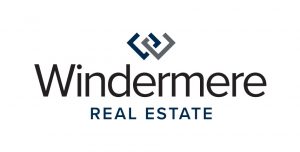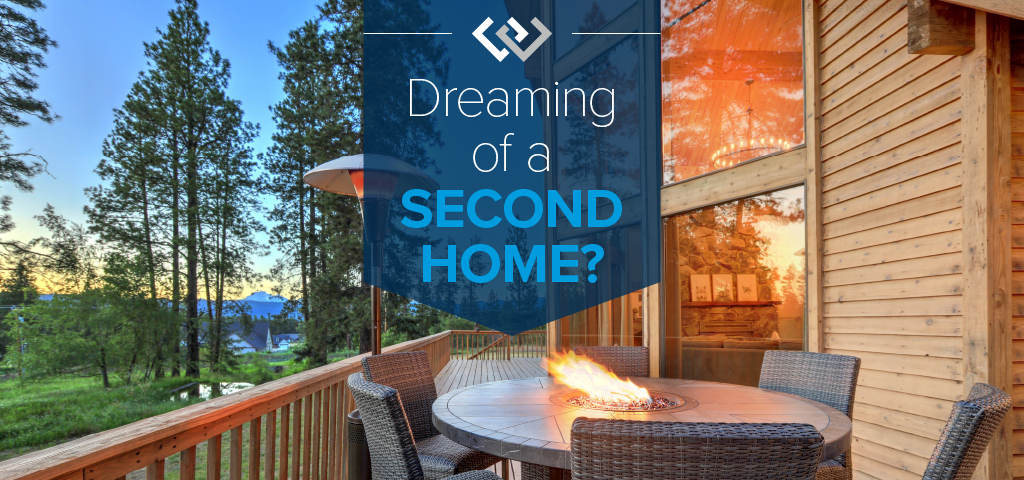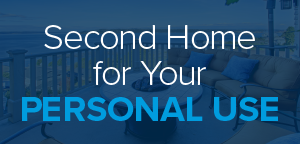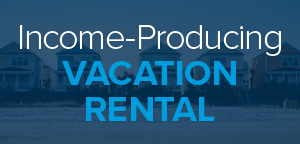Here are a few tips to make sure it’s worthwhile…
These days, having your own home away from home is a compelling concept. There are many clear benefits including being able to use your home how you wish, decorate to your taste, and include your furry friends in your time away. There are also challenges to be considered as home security, maintenance, and holding expenses are nothing to ignore.
One consideration to start with is whether the home will be solely used by your family or become an income-producing vacation rental. In addition to being a lifestyle choice, this determination will impact your income taxes and insurance needs and should be made before you embark upon this journey.
There are advantages and disadvantages to both options:
Owning as a Personal Second Home
PROS
- Comfort: Returning to the same place is familiar and often more relaxing than staying in a hotel or vacation rental. It allows you to enjoy your space as you wish and include pets and hobbies in your home away from home. Proximity to your primary residence is an important factor. How long will it take to get there? You will likely visit more often if your second home takes under three hours to travel to. Choosing a location that you will enjoy for years to come is essential to making a good purchase decision.
- Convenience: The ability to keep your possessions that are used exclusively at the second home simplifies travel and packing and makes it easier to be surrounded by the things you enjoy.
- Long-term profit: While assets fluctuate in value in the short term, vacation properties are more likely to retain their value and appreciate because they are located in popular areas with a geographically limited supply. At some point you could have a nice nest egg or a property that becomes a family vacation home for future generations.
- Future retirement options: A common retirement goal is to have a place to retreat for part of the year in addition to your main residence. Whether a second home will become a full-time venue in retirement or continue to be a part-time get-away, having it established before retirement gives you options.
CONS
- Initial cost: Buying a second or vacation home is a big investment. Down payment requirements are typically higher on non-primary residences and that cash outlay can take away from other investment opportunities.
- Maintenance: Your second or vacation home will require maintenance and upkeep just like your primary residence. You’ll need to plan to tackle that yourself or hire someone else to do it for you. Let it get away from you, and you will be spending your leisure time worrying about everything that needs to get done instead of relaxing.
- Commitment: When you are paying a significant amount of money each month for a second or vacation home, you may feel that you need to constantly visit the property to justify your investment. You’ll need to ask yourself if the idea of going to the same place over and over again is appealing or a turn-off.
- Other considerations: Evaluating and mitigating your exposure to natural disaster (fire, flood, earthquake, tsunami, etc.) and liability risks (guest injury, burglary, squatting, vandalism, arson) on a home that is vacant for much of the time is an important consideration. Determine how you will keep your home safe and secure.
Owning as an Income-Producing Vacation Rental
PROS
- Income to offset expenses: A good vacation rental property generally provides a healthy rental revenue which could potentially cover mortgage payments and operating expenses. Using an online short-term rental service like Airbnb makes it convenient to manage your rental property. Their website interface makes pricing, marketing, and communication with potential guests straightforward and easy. Airbnb will also oversee the billing process for you.
- Tax considerations: You may qualify for federal tax breaks and deductions related to holding your investment property. This can help offset the expense of owning and provide investment opportunities for the future.
- Long-term profit: Like a second home, vacation properties are more likely to retain their value and appreciate over time. At some point you could have a nice nest egg or a property that becomes a family vacation home for future generations.
- Future retirement options: While there are tax considerations to converting an income-producing property into a personal use property, owning a vacation home allows you to insulate yourself against rising real estate prices and give you options for future use.
CONS
- Initial cost: Buying a vacation home as an investment property will require both a hefty down payment and initial start-up expenses to furnish and supply the home. You will need to evaluate that cash outlay with other potential investment opportunities.
- Management and maintenance: Vacation rentals can be costly to manage, both in terms of time and money. These properties may require seasonal upkeep and special maintenance considerations. You may even incur costs to maintain or monitor the property even when it’s not actively being utilized.
- Revenue fluctuations: Vacation rental properties are particularly sensitive to seasonal fluctuations and economic downturns, which could leave you financially exposed. Having a property that is attractive in multiple seasons is a definite plus.
- Short-term rental restrictions: Many state and local municipalities are seeking to reign in short-term vacation rentals, which could put a damper on potential revenue from these properties. Many now require a minimum rental period of 30 days. In contrast, there are locations that are ideal for these kinds of short-term rentals. Look into regional ordinances, do a Google search, and check out local newspapers to discover recent talk of changing or enforcing such codes.
- Other considerations: In addition to evaluating and mitigating your exposure to natural disaster and liability risks, you will want to consider other holding expenses. These might include higher renovation and repair costs due to high-use or damage. Most travelers expect the latest appliances and furnishings, so you will have to update every few years. Unfortunately, short-term renters are less likely to report any necessary repairs and guests are far less likely to treat the property with respect since there is no sense of ownership or obligation.
Final Thoughts
Regardless of your decision to use the property personally or as an investment, checking in with your CPA and financial advisor is a good first step. They can advise you of pros and cons of each approach, States that are more or less favorable to own a non-primary residence in, and whether you should establish a trust or LLC to hold the property in.
Having a savvy real estate broker help you understand the local scene, evaluate options, and provide vetted resources is essential, especially when you are looking in an area you are less familiar with.
Still have questions? Contact one of our knowledgeable brokers for assistance with exploring a second and vacation home purchase locally or a referral to a great broker in other areas you are considering.

Find a Home | Sell Your Home | Property Research
Neighborhoods | Market Reports | Our Team
We earn the trust and loyalty of our brokers and clients by doing real estate exceptionally well. The leader in our market, we deliver client-focused service in an authentic, collaborative, and transparent manner and with the unmatched knowledge and expertise that comes from decades of experience.
2737 77th Ave SE, Mercer Island, WA 98040 | (206) 232-0446
mercerisland@windermere.com
© Copyright 2021 Windermere Mercer Island

 Facebook
Facebook
 X
X
 Pinterest
Pinterest
 Copy Link
Copy Link




